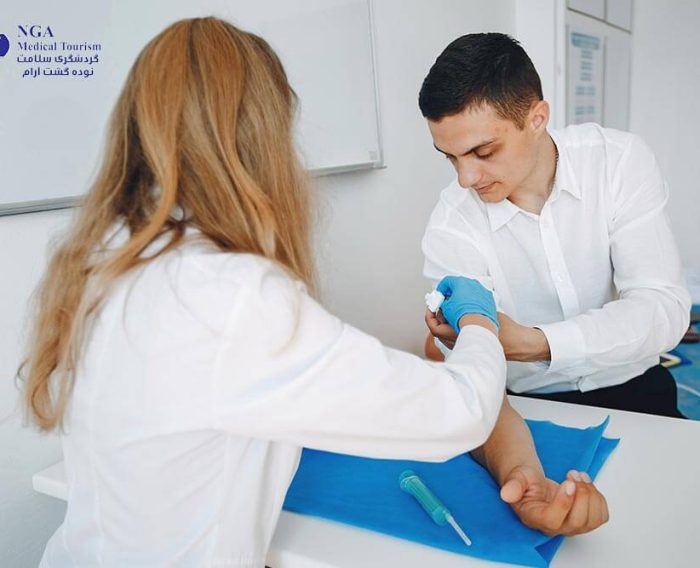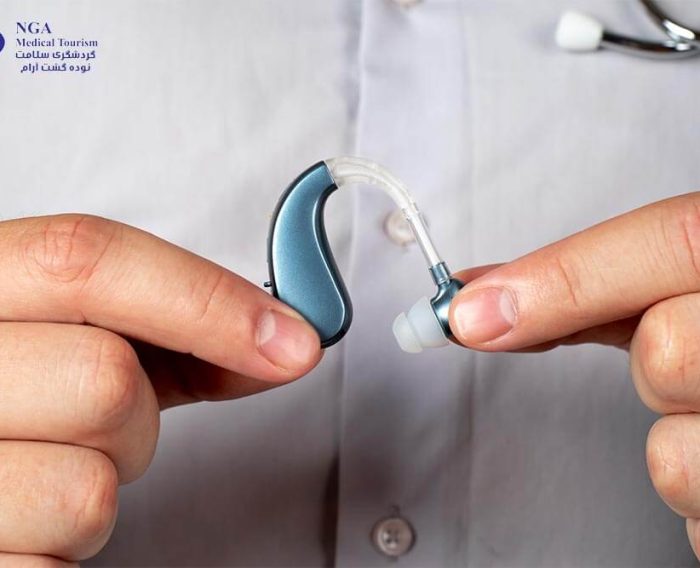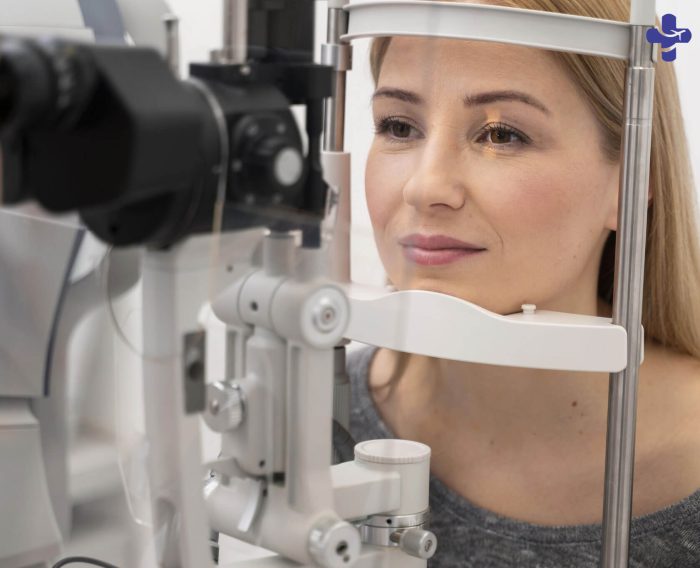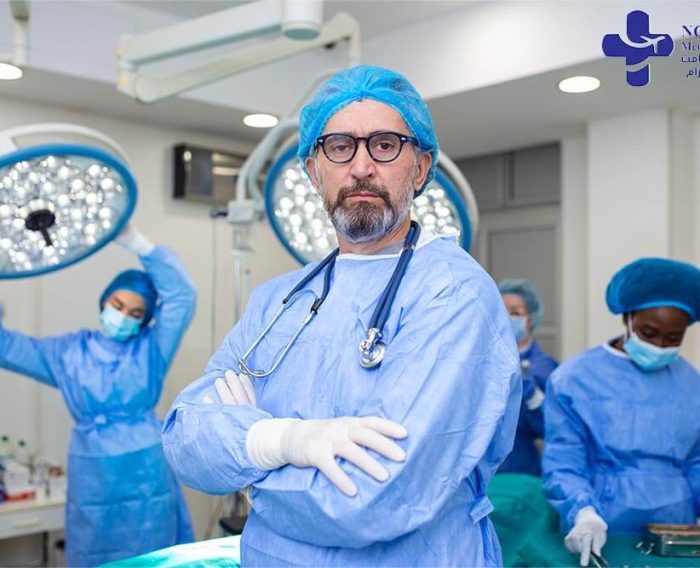If you stay in Iran for two weeks, you can do both actions in one trip
For the LASIK procedure, you must stay in Iran for about a week
Yes, you may need to wear glasses for up to 6 weeks after surgery
It is possible to return to your usual activities within 2 to 4 days after the LASIK procedure. You should be able to read or resume your desk work on the third or fourth day. But do not drive in the first week after surgery
The doctor uses numbing eye drops to numb the surface of the eye (cornea and conjunctiva) and then performs the eye LASIK procedure
After eye LASIK surgery, about one to two days of rest is enough. After this period, it is possible to return to your normal daily activities.
It takes about 30 to 60 minutes to perform the LASIK procedure
A specialist surgeon makes irreversible adjustments to the cornea. The surgery is relatively complicated because it involves creating a flap on the cornea. Like other surgical procedures, it also has certain side effects. Therefore, to reduce the risk, we recommend you to choose an experienced and skilled specialist or surgeon
If you are eighteen years old and healthy, but tired of wearing glasses and contacts, you are a good candidate for LASIK surgery.
You are not a good candidate if:
.You are pregnant or breastfeeding
.You have uncontrolled type 2 diabetes or rheumatic heart disease
.You use migraine or acne medications
.You have been suffering from dry eyes for a long time
.If you have severe astigmatism
.Your vision is still not stable and your glasses prescription is constantly changing. Before starting the LASIK operation, you must make sure that your vision is stable for at least 6 months to a year.
.You are 40 years old or older and have more severe presbyopia. Presbyopia cannot be treated with LASIK
.You suffer from glaucoma, cataracts, keratoconus, eye herpes or uveitis and high eye pressure. In this situation, you should treat the condition before choosing LASIK surgery.
You suffer from autoimmune diseases such as HIV or rheumatoid arthritis.
.Or you have thin corneas
Your pupil is too small to perform surgery or you have severe visual impairment.
.Your profession involves trauma or potential trauma to the eyes, including martial arts, being in the fire department or the military
no Presbyopia cannot be treated with LASIK surgery, and it cannot be performed if you have this complication
Unless there are indications that prohibit you from having bilateral surgery, you can usually have LASIK on both of your eyes at the same time
You must be at least eighteen years old to have LASIK surgery. This is because your vision changes when you are young
The specific surgeon who will perform your LASIK eye surgery will depend on the clinic or hospital where you have scheduled your procedure. Before your surgery, you will have a consultation with an eye doctor who will evaluate your vision and determine if you are a good candidate for LASIK. If you decide to proceed with the surgery, the doctor will likely refer you to a qualified LASIK surgeon who will perform the procedure. It’s important to choose a reputable clinic or hospital and a qualified surgeon with experience in LASIK surgery to ensure the best possible outcome.
LASIK (Laser-Assisted In Situ Keratomileusis) eye surgery is a relatively quick procedure that typically takes around 15-30 minutes to complete for both eyes. Here’s what you can generally expect during the procedure:
Numbing Eye Drops: Before the procedure begins, the surgeon will apply numbing eye drops to your eyes to ensure that you don’t feel any pain during the surgery.
Creation of the Flap: The surgeon will use a microkeratome or femtosecond laser to create a thin, hinged flap in the cornea of your eye. This flap is gently folded back to expose the underlying corneal tissue.
Reshaping of the Cornea: Using an excimer laser, the surgeon will then reshape the cornea by removing tiny amounts of tissue. This reshaping is customized to your individual needs and is based on the measurements taken during your initial consultation.
Replacing the Flap: Once the cornea has been reshaped, the surgeon will carefully reposition the flap over the treated area, where it will adhere without the need for stitches.
Post-Operative Care: After the procedure, the surgeon will provide you with specific instructions for post-operative care. You will likely need to use eye drops and avoid certain activities for a few days following the surgery.
Overall, LASIK is a safe and effective procedure that can provide lasting improvements to your vision. However, as with anysurgical procedure, there are potential risks and complications that you should discuss with your doctor. These may include dry eyes, glare, halos, and vision changes. It’s important to follow your doctor’s instructions closely and attend all follow-up appointments to ensure proper healing and the best possible outcome.
The percentage of patients who require a retreatment after LASIK surgery can vary depending on a number of factors, including the individual’s initial vision prescription, the type of LASIK procedure performed, and the skill and experience of the surgeon. However, according to recent studies, the overall retreatment rate for LASIK is relatively low, typically ranging from 1% to 5%.
In some cases, patients may experience a decrease in visual acuity or other issues with their vision following the initial LASIK procedure. This may be due to factors such as changes in the eye’s refractive properties over time or an incomplete correction of the initial vision prescription. If this occurs, a retreatment procedure may be necessary to further refine the corneal shape and improve visual acuity.
It’s important to note that not all patients are good candidates for LASIK, and some individuals may be more likely to require a retreatment or experience other complications. Your doctor can help you determine if LASIK is a good option for you based on your individual needs and medical history.
Eligibility for laser eye surgery depends on various factors such as the type and severity of the vision problem, age, overall health status, and other factors.
Most people who want to have this surgery done have one of three common eye problems:
Myopia: In this condition, a person can see well at a close distance, but has difficulty seeing things that are far away.
Hyperopia: In this condition, a person can see well at a distance, but has difficulty seeing things up close.
Astigmatism: In this condition, the cornea of the eye is irregularly shaped, causing images to be blurry and distorted.
Other factors can also affect eligibility for laser eye surgery, such as:
Age: People over 40 may need other treatment options due to a significant decrease in the flexibility of the eye lens.
Health conditions: Certain health conditions such as heart disease, diabetes, and some autoimmune disorders may increase the risk of side effects after the surgery.
To determine whether you are eligible for laser eye surgery, you should consult with an eye doctor. Your doctor will need to perform a comprehensive eye exam and recommend the appropriate type of surgery based on your specific circumstances.
The recovery time after laser eye surgery depends on the type of surgery and the individual’s healing process. In most cases, patients who undergo LASIK or PRK surgery may experience some discomfort such as dryness, itching, or mild pain in the eyes during the first few days following the surgery. Additionally, they may need to use an eye shield or protective glasses for a few days after the surgery to prevent the risk of accidentally rubbing or bumping their eyes. Most patients are able to resume their daily activities such as driving and working on a computer within one to two weeks after the surgery. However, to ensure proper healing and prevent complications, it is important to follow the post-operative instructions carefully. You should also schedule follow-up appointments with your doctor and undergo regular check-ups after the surgery.
The best method for laser eye surgery depends on the individual’s specific needs and circumstances. Currently, there are two main types of laser eye surgery:
LASIK (Laser-Assisted in Situ Keratomileusis): In this method, a thin flap is created in the cornea to access the inner part of the eye. Then, a laser is used to reshape the cornea so that the path of light can be properly focused. The corneal flap is then put back in place and naturally adheres to the eye. This method is typically used to treat nearsightedness, farsightedness, and astigmatism.
PRK (Photorefractive Keratectomy): In this method, the cornea is reshaped without creating a flap. This method is recommended for patients who do not have a thick cornea or have weak indicators for LASIK during their pre-surgery examination.
When considering the best method for laser eye surgery, it is important to consult with your eye doctor. Your doctor can recommend the best method based on the specific needs of your eyes and your overall health.
Laser eye surgery is typically performed by an ophthalmologist or a refractive surgeon who has specialized training and experience in this type of surgery. These professionals are trained to diagnose and treat various eye conditions and have undergone additional training and certification to perform laser eye surgery. When choosing a surgeon to perform your laser eye surgery, it is important to research their credentials, experience, and track record of successful surgeries. You may also want to read reviews or ask for recommendations from friends or family members who have had laser eye surgery. Ultimately, you should choose a surgeon who you trust and who can provide you with the best possible care for your eyes.
Laser eye surgery typically takes between 10 and 15 minutes per eye, and most patients can return to their normal activities within a few days. The recovery time is usually brief and relatively painless, and the results of the surgery are long-lasting.
If you are tired of wearing glasses or contact lenses and want to enjoy clear, sharp vision without them, laser eye surgery may be the perfect solution for you. With its ease, safety, and effectiveness, laser eye surgery can help you achieve the clear vision you deserve, without the hassle and inconvenience of corrective eyewear.
Some alternatives to laser eye surgery include:
Contact lenses: Contact lenses are a non-surgical option for correcting vision problems, such as myopia, hyperopia, and astigmatism. They provide a clear, crisp vision and are available in a variety of types to suit different needs and preferences.
Eyeglasses: Eyeglasses are a simple and effective option for correcting vision problems. They are available in a wide range of styles and designs to suit different needs and preferences.
Orthokeratology: Orthokeratology, or ortho-k, is a non-surgical procedure that uses specially designed contact lenses to reshape the cornea temporarily, providing clear vision without the need for glasses or contacts during the day.
Refractive lens exchange: Refractive lens exchange is a surgical procedure that replaces the natural lens of the eye with an artificial one to correct vision problems. This procedure is typically recommended for patients with presbyopia, a condition that affects the ability to see up close as we age.
It is important to consult with an ophthalmologist or optometrist to determine the best treatment option for your specific needs and circumstances. They can help you weigh the pros and cons of each option and make an informed decision about your vision care.
As with any other surgical procedure, laser eye surgery carries some risks and potential complications. Some possible risks of laser eye surgery include:
Dry eyes: After the surgery, the eyes may become dry and require the use of eye drops.
Infection: There is always a risk of infection with any surgery, but this risk can be minimized by following proper hygiene practices and using appropriate disinfectants.
Changes in vision: In some cases, laser eye surgery may cause changes in vision, such as increased sensitivity to light, decreased visual acuity, or increased glare.
Refractive issues: In some cases, laser eye surgery may cause refractive issues, such as halos, starbursts, and double vision.
Corneal shape issues: In some cases, laser eye surgery can cause issues with corneal shape, such as bulging, thinning, or irregular shaping.
However, it is important to note that most of these risks and complications are rare and usually not permanent, and many patients experience a full recovery and significant improvement in their vision after laser eye surgery. Before deciding on laser eye surgery, it is important to consult with your doctor and discuss the risks and benefits of the procedure.
There are certain health conditions that may affect a patient’s eligibility for laser eye surgery or increase the risk of complications during the procedure. Some of these health conditions include:
Autoimmune disorders: Patients with autoimmune disorders, such as rheumatoid arthritis, lupus, or Sjogren’s syndrome, may be at a higher risk of complications during and after laser eye surgery.
Chronic dry eye: Patients with chronic dry eye may experience more severe symptoms after laser eye surgery and may need to use eye drops for a longer period.
Diabetes: Patients with diabetes may be at a higher risk of complications during and after laser eye surgery, such as delayed healing or infection.
Glaucoma: Patients with glaucoma may not be good candidates for laser eye surgery, as the procedure can increase intraocular pressure and worsen the condition.
Pregnancy or breastfeeding: Women who are pregnant or breastfeeding should avoid laser eye surgery, as hormonal changes during these times can affect the shape of the cornea and the accuracy of the procedure.
Other eye conditions: Patients with certain eye conditions, such as cataracts, retinal detachment, or keratoconus, may not be good candidates for laser eye surgery.
It is important to inform your eye doctor of any health conditions you have or medications you are taking before undergoing laser eye surgery. Your doctor can help determine if you are a good candidate for the procedure and recommend alternative options if necessary.
During the surgery, your cornea has a flap cut into it. That flap needs time to reattach itself before it is safe to resume a normal life. A normal LASIK patient takes around three months to complete this recovery time. Some patients can take upwards of six months to a year to fully recover.
2022 — The FDA is reviewing comments on a draft policy that could alter the way Americans see LASIK surgery to improve their vision. The FDA proposal pushes for warnings about double vision, dry eyes, ongoing pain, and other issues. It even says people might still need eyeglasses after the surgery
Avoid pools, whirlpools, saunas, and lakes for at least 3 weeks. No eye makeup for at least a week. Toss out partly used products to avoid an infection. Don’t get your hair colored or permed for at least 10 days.
Don’t Wear Makeup, Perfume or Fragrance
Makeup can interfere with the medications and lasers that are used during surgery, so don’t wear any that day. It’s also important to avoid any scented products, perfume or fragrances on the day of surgery
Do not drink anything except for clear water after midnight the night before surgery. If you do not fast, we will need to cancel your surgery. Take your daily medications as usual on the morning of surgery with small sips of water. If you are diabetic, do not take any oral diabetic medication the morning of surgery.
What are the do’s and don ts after eye surgery?
do not allow soap or shampoo to get into your eye. do not drive until you get the all-clear from your doctor. do not do any strenuous exercise or housework. do not wear eye make-up for at least 4 weeks.
do not allow soap or shampoo to get into your eye. do not drive until you get the all-clear from your doctor. do not do any strenuous exercise or housework. do not wear eye make-up for at least 4 weeks.
Don’t: Eat or Drink Right Before the Surgery
While under sedation, there is a chance of stomach acid going into your lungs, which can cause damage. You will need to fast for about 12 hours before surgery to ensure you are safe from this effect.
Typically, eye doctors will set their limits to +6 for farsightedness, -12 for nearsightedness, and 6 diopters for astigmatism.
What is the LASIK complication rate? The LASIK complication rate is less than 1%. LASIK complications include infections as well as dislocation of the corneal flap that’s made during the surgery. Surgical complications from laser vision correction are extremely rare.
Yes, your vision can be potentially too bad for LASIK. LASIK is available to a variety of patients, but patients will generally qualify for treatment if their vision falls between -0.5 D to -8.0 D myopia. The maximum prescription for treatment for patients with moderate to severe myopia is around -8.0 D
LASIK: 25-40
Generally speaking, most LASIK eye surgeons agree on 25-40 as the ideal age range for LASIK eye surgery candidacy for a few reasons. By the age of 25, eyeglasses and contact lens prescriptions have most likely stabilized. A stable prescription is one of the hallmarks of a good LASIK candidate.
According to the sources, greater than 90% of LASIK patients attain 20/20 vision or higher after 2 to three months of post-surgery recovery.
10 Tips For LASIK Recovery
Right After LASIK Eye Surgery. Before you leave the surgical center, you will receive goggles or eye shields. …
Do Not Rub Your Eyes. …
Keep Your Follow-Up Appointments. …
Use Your Eye Drops as Recommended. …
Get Plenty of Rest. …
Stick to Clean Environments. …
Wear Sunglasses. …
Avoid Intense Sports.
Watching TV immediately after the procedure can cause your eyes to strain, and that may negatively affect the healing process. Keeping eyes away from the screen will prevent them from straining, getting tired and drying out. After the first 24 hours, your eyes should be strong enough to handle a little screen time.
How do you entertain yourself after laser eye surgery?
12 Tips for a Smooth LASIK or PRK Recovery – Assil Gaur Eye …
Since your eye doctor will instruct you to avoid screens and bright lights for a day (LASIK) or two (PRK), you’ll want to have a game plan for keeping your mind busy while you’re recovering from PRK or LASIK. Consider downloading podcasts music or books to help you relax.
12 Tips for a Smooth LASIK or PRK Recovery – Assil Gaur Eye …
Since your eye doctor will instruct you to avoid screens and bright lights for a day (LASIK) or two (PRK), you’ll want to have a game plan for keeping your mind busy while you’re recovering from PRK or LASIK. Consider downloading podcasts music or books to help you relax.
While you can get back to your regular routine within a few days of LASIK and trans-PRK laser eye surgery, you should wear your sunglasses for at least a week after the surgery. While the eyes may feel as though they have healed all the way, it may still experience some irritation and discomfort.
24 hours
When Can I Drive After LASIK? It is typically okay 24 hours after your LASIK eye surgery to resume driving. Your first post-operative appointment will be the day following your LASIK. Once your vision has been checked and deemed to be legal driving vision you are good to get back behind the wheel.
You have a disease or are on medications that may affect wound healing. Certain conditions, such as autoimmune diseases (e.g., lupus, rheumatoid arthritis), immunodeficiency states (e.g., HIV) and diabetes, and some medications (e.g., retinoic acid and steroids) may prevent proper healing after a refractive procedure.
A: An eye doctor would be able to determine if someone has had laser eye surgery upon a comprehensive examination. You can’t hide Lasik from everyone, but the average person is not likely to notice the change in the shape of the cornea or the location of the Lasik incision after the normal six month healing period
The intraoperative complication rate of Laser in situ keratomileusis (LASIK) has been reported to be in between 0.7-6.6%
Among the most frequently asked questions: What happens if I sneeze or blink during my LASIK surgery? The short answer: Blinking or sneezing will not affect the outcome of your surgery.
Is LASIK Eye Surgery Painful? Fortunately, LASIK eye surgery is not painful. Right before your procedure, your surgeon will place numbing eye drops into both of your eyes. While you may still feel a little bit of pressure during the procedure, you should not feel any pain.
Either choose a room with no windows or have window coverings that are opaque and have no gaps. Eliminate specular (mirrored) surfaces. Have no mirrors or if you do have a blind installed to cover it during treatments.
You will need to have a family member or friend with you to take you home. Once you get home, it is recommended that you rest your eyes and nap. Several hours post-surgery, most people are able to watch some television or look at a computer screen for a short period of time.
You may experience some discomfort, or in some cases, mild pain and your doctor may suggest you take a mild pain reliever. Both your eyes may tear or water. Your vision will probably be hazy or blurry. You will instinctively want to rub your eye, but don’t!
Your eyes may look a little bloodshot for up to 3 weeks. LASIK surgery can cause small blood vessels in your eye to pop, so they can appear red for some time. Some people also find that they are sensitive to light or see starbursts or halos for 1 to 3 weeks after surgery.
Like any surgical procedures, there are potential risks and side effects. LASIK failures and LASIK complications commonly include, glare, halos, dryness, ghost images, star bursting, smeared images, loss of contrast, vision fluctuation, blurry vision, and double vision.
For some patients, the night vision problems will last for a few weeks, with vision gradually returning to normal during that time. For others, the night vision issues can persist for a few months. You will meet with your eye doctors periodically after LASIK surgery in order to monitor your progress.
Severe pain after LASIK surgery is extremely rare and should not be expected in general. However, some minor discomfort and soreness are to be expected. This discomfort could take the form of itchiness or even burning; more commonly, patients feel a sensation similar to the presence of a foreign object in the eye
Depending on age and other vision conditions, glasses may still be needed after LASIK, particularly for reading. Certain eye conditions, such as presbyopia, are not typically treated through LASIK. Presbyopia is a natural condition that everyone experiences to some degree as they age.
In general, there is no limit on how many LASIK procedures you can get in your lifetime. Several factors affect whether or not you are a good candidate for enhancement surgery. The thickness of the cornea is one of the main determinations regarding the safety of multiple LASIK surgeries.
LASIK goggles prevent patients from rubbing the eyes during this important stage of recovery when the flap could become easily damaged. It is especially important to wear the LASIK goggles at night when a patient is unaware of his/her actions and may inadvertently touch, rub, or scratch the eyes.
You’ll be awake during LASIK, so it’s important to be in comfortable clothing. Stick to loose clothes that you can easily take off once you return back home. This may be something like leggings, athletic shorts, a zipper hoodie, or a soft t-shirt
You may be anxious the night before, but do your best to go to bed early. Relax with a bath, music, or a cup of tea to make sure you fall asleep. Wear a loose, comfortable outfit that’s picked out in advance that you can wear during LASIK.
4 Tips To Calm Down Before LASIK
Have an Honest Discussion with Your Doctor. The most important step in dealing with anxiety is knowledge. …
Practice Deep Breathing. Deep breathing is a wonderful stress-relieving technique for all kinds of situations. …
Listen to Music. …
Bring a Friend.
Yes, it is ok to brush your teeth prior to cataract surgery. If you have been asked to fast prior to the surgery, you should use as little water as possible and try to not drink anything during or after brushing your teeth.
While a hot shower or bath the night before your LASIK surgery may help you relax, just remember not to use any fragranced products. You will want to arrive for your surgery with a freshly cleaned face, leaving your skin free of any contaminants that could irritate your eyes.
Sleep on your back or on the opposite side of the eye that was operated on to decrease your risk of infection and irritation after surgery. If you turn over in your sleep, your eye shield should help protect your eye from significant damage.
Nunnery advise patients that it is okay to bathe or shower normally the day after LASIK eye surgery. Yet, for the first week after your LASIK surgery, it’s important to keep water, soap, hair care products and/or washing liquids away from the eye. Do not rub your eyes while bathing or showering after LASIK.
Several hours following the surgery, most patients are able to watch some television or look at a computer screen for a short period of time. It’s important however that you don’t over-exert your eyes during the first 24 hours post-surgery.
Strenuous activity and exercise after cataract surgery
Most people can do very light exercise the day after surgery, including walking. For activities like biking, running, tennis, golf and sex, wait one week after your procedure.
Foods to avoid include refined carbohydrates, sugar, salt, and processed foods. People should also avoid tobacco and alcohol, which can slow healing and increase inflammation
Usually, before having a general anaesthetic, you will not be allowed anything to eat or drink. This is because when the anaesthetic is used, your body’s reflexes are temporarily stopped. If your stomach has food and drink in it, there’s a risk of vomiting or bringing up food into your throat.
High-sugar foods
Packed juices.
Honey.
Healthier sugar alternatives (brown sugar, coconut sugar, etc.)
Fruits with high-sugar.
Cakes, pastries, candies, etc.
You have a thin or irregular cornea
If you have a predisposition to corneal shape irregularity, this can be made worse by laser eye surgery, and a condition called corneal ectasia may develop. This occurs infrequently and can often be treated successfully without the need for a corneal transplant.
Published medical studies have shown a persistent decrease in corneal cells (keratocytes) after LASIK. Doctors speculate that this loss might lead to long-term problems. Corneal nerves responsible for tear production are severed and destroyed during LASIK.
LASIK doesn’t cause or prevent an eye disease, nor does it hinder something in the future from being treated.
Infection. An infection of the cornea is the worst thing that could happen after laser refractive surgery. This is extremely rare and has been reported to occur in about 1 in 5000 cases. Every effort is made to reduce the risk of an infection following refractive surgery.
But there are plenty of people in their 40’s, 50’s, 60’s and beyond who have relatively healthy eyes and therefore may still be perfectly good candidates for LASIK. So the idea that there is an upper-age limit for treatment is simply false. You’re never too old for LASIK if your eyes are healthy enough.
For people in their 40s, LASIK may still be a good option as they begin to experience age-related vision changes, but their visual progression also opens the door for other procedure options
The best thing you can do is keep your eyes closed for at least 3 hours after LASIK. It’s okay if you don’t fall asleep. The act of closing your eyes and resting them can make a big difference during the recovery process. When you close your eyes, make sure to wear the eye shields provided.
MYTH: LASIK results are not permanent.
The changes in the shape of the cornea that are created by LASIK are permanent. LASIK does not wear off. Only 5% of people who have LASIK require enhancements in their lifetime
Recommended Post-LASIK Activity Schedule
Always avoid rubbing your eyes. …
Avoid staring without lubricating the eyes.
Avoid watching TV or reading.
Avoid showering (you may take a bath but avoid getting soap or water in the eyes, showering or bathing before surgery is fine).
Avoid alcohol consumption.
No surgical procedure is 100% effective. However, LASIK has one of the highest success and satisfaction rates of any elective procedure, with 96% of LASIK patients reporting high satisfaction after treatment. Effectiveness studies show that 70% to 90% of LASIK patients achieve 20/20 vision or better after treatment.
How Often Does LASIK Not Work? Typically less than 5 percent of the time, LASIK doesn’t meet the patient’s expectations for vision improvement. For those patients, even after healing, there may be some residual nearsightedness, farsightedness, or astigmatism.
You will be offered a mild sedative pill to help you relax for your procedure. It’s usually a good idea for patients because the pill helps them relax some and it helps them take an excellent nap afterwards. Often times, patients report that their post-LASIK nap was one of the best naps they’ve had in a long time!
It is critical that eyes don’t get strained or dry during this recovery period. In most cases use of digital devices is restricted for 24 hours after Lasik. Thereafter most people are advised to slowly increase the duration of computer usage over the first 2-3 weeks. This restriction applies to other screens as well.
On the day of surgery, you may be asked to arrive several hours before your procedure is scheduled to begin. This allows the staff to complete any tests that cannot be performed until the day of surgery.
While crying for emotional reasons tends to produce more tears, it is still not harmful, even after Lasik. It is considered a good thing to keep the eye lubricated after surgery, as this helps the healing process.
Certain retinal surgeries require that you keep your head in a face down (parallel to the ground) position during recovery. If this position is not maintained for several weeks after surgery, the surgery will not be successful.
If you don’t stay overnight, you will need someone to take you home because you won’t be able to drive or take public transportation by yourself. It’s best to have someone with you for at least the first 24 hours after general anesthesia.
Your eyes may be sensitive after eye surgery, and it will take time to get accustomed to bright colours. Fall is the perfect time for vision correction – right between summer and winter.
24 hours
Since your eyes are still healing, they will be especially sensitive in the first 24 hours after the LASIK procedure. Because of this, it’s recommended to wait at least 24 hours before using your phone, computer, tablet or watching TV.
Dress comfortably
You’ll want to be as comfortable as possible, so wear clothes that are loose-fitting and comfortable, so you can return home to rest without the need to change your clothes. And avoid wearing hair accessories that may interfere with your procedure as your head is positioned under the laser.
MEDICATIONS To minimize the risk of blood loss during your surgery, you must avoid or stop taking medications that contain aspirin, that are anti-inflammatory medications, or contain blood thinning agents. These should be discontinued 7-10 days prior to your surgery.
As you’ll be awake during your surgery, you’ll still be able to see – but don’t worry, you won’t be able to see the surgeon operating on your eye!
All surgeries carry some risk of complications and side effects, but LASIK is generally considered a safe procedure with a low complication rate. In fact, LASIK is one of the safest elective surgical procedures available today, with a complication rate estimated to be less than 1%
Around 90 percent of LASIK patients end up having between 20/20 and 20/40 vision without wearing glasses or contacts
Success Rate of LASIK
The majority of people who have undergone LASIK experience few complications and long-lasting results. About 95 percent of people report satisfaction with their procedure, even when the results were less than 20/20 vision.
Serious LASIK complications are extremely rare, occurring in less than 1 percent of procedures. Most side effects from LASIK are part of the normal healing process and go away over time.
If your vision is still noticeably blurred three months after LASIK, you may need an enhancement. To determine whether you’re a good candidate for a LASIK enhancement, your eye doctor will re-evaluate your corneas with the same methods used prior to your first LASIK procedure.
Risks. Complications that result in a loss of vision are very rare. But certain side effects of LASIK eye surgery, particularly dry eyes and temporary visual problems such as glare, are fairly common. These usually clear up after a few weeks or months, and very few people consider them to be a long-term problem
Could my vision change after Lasik? As we mentioned above, the laser makes permanent changes to the shape of the cornea. This cannot be reversed; however, sometimes vision can continue to change as a person ages. In this case, you may notice changes to your vision over the years even if you’ve undergone Lasik surgery.
For the first 24 hours after surgery, it’s best to wear sunglasses anytime you’re outside. Inside, they can help with light sensitivity. Outside, they’ll protect you from UV light and potential hazards
Yes. Sunglasses protect your eyes from intense light and the sun’s UV rays. After LASIK eye surgery, your eyes are going to be more sensitive. Protecting them will keep you comfortable and assist with the recovery process.
Night Vision Problems as a Side Effect of LASIK
Many patients will notice starbursts, halos, and glare around bright lights, as well as difficulty seeing other objects at night. These issues with contrast and light sensitivity can make driving or otherwise being out at night very dangerous.
How Should I Be Getting Home After Laser Eye Surgery? It is not essential for patients to travel home with someone. Many patients attend the clinic on their own and are able to travel home quite safely after Laser Eye Surgery.
Reading, working on the computer and watching television can be resumed 24 hours after LASIK surgery. If necessary, you may want to keep your eyes lubricated during these activities. Each person’s healing pattern is unique so be sure to resume activities based on your doctor’s instruction and recommendation.
The majority of LASIK patients are back to their normal routine within a day or two. In fact, if you’re a LASIK patient, you’ll most likely be able to return to work the next morning after surgery! Be sure to check with your LASIK surgeon just to be sure!
LASIK Flap Recovery After the Procedure
The outer edges of the flap seal down in the epithelium within a day or so. Then, the deeper layers of the cornea continue to gradually anchor more tightly to the overlying flap. Full LASIK eye flap healing time usually takes a few weeks to a few months.
Mozayeni and Dr. Nunnery advise patients that it is okay to bathe or shower normally the day after your LASIK eye surgery. For the first week after your LASIK surgery, it’s important to keep water, soap, hair care products and/or washing liquids away from the eye. Do not rub your eyes while bathing.
After eye surgery, you should avoid swimming pools, hot tubs, saunas, and other bodies of water like lakes and rivers for at least two weeks. After two weeks, we encourage you to wear goggles or keep your eyes closed under water if you decide to go for a swim.
Refractive eye surgery
Conclusion:
All IPD services were mentioned in the video at the beginning of the page. For more information, call +98 912 013 1750-1 and +98 912 936 9336.
Your message will be reviewed by our doctors and specialist . We will get back to you within 24 Hours.
Nodeh Gasht Aram experts will answer your questions 24/7 , through online chat or by phone.
You get medical opinion and cost estimate
Nodeh Gasht Aram plan your trip.
We arrange your medical visa , flight, ticket, appointments, accommodation etc.
Booking various types of accommodation
interpreter
insurance
SIM & Internet
City Tour
Collaboration with different medical centers to get the best diagnosis and treatment by talent doctors and surgeons...
Post-treatment recuperation and check up .
After the completion of treatment and you return to your country, we will follow you around the clock.
Why Nodeh Gasht Aram?
- Contact Us Via Whatsapp: Your message will be reviewed by our doctors and specialist . We will get back to you within 24 Hours.
- Free Consultation: Nodeh Gasht Aram experts will answer your questions 24/7, through online chat or by phone.
- Qoutation: You get medical opinion and cost estimate
- Ticketing & Visa Support: Nodeh Gasht Aram plan your trip We arrange your medical visa , flight, ticket, appointments, accommodation etc.
- Hotel Booking,Travel Insurance,Interpreter: Booking various types of accommodation, interpreter, insurance, SIM & Internet, City Tour
- Hospitality & Diagnosis & Treatment: Collaboration with different medical centers to get the best diagnosis and treatment by talent doctors and surgeons.
- Recovery: Post-treatment recuperation and check up .
- Follow-up: After the completion of treatment and you return to your country, we will follow you around the clock.
Contact Us Via Whatsapp
Free Consultation
Qoutation
Ticketing & Visa Support
Hotel Booking,Travel Insurance,Interpreter
Hospitality & Diagnosis & Treatment
Recovery
Follow-up
Our Services
 Aortic valve stenosis (Aortic stenosis)
Aortic valve stenosis (Aortic stenosis) arteriovenous malformations
arteriovenous malformations Avascular Necrosis
Avascular Necrosis Cardiology
Cardiology Cataract surgery in Iran
Cataract surgery in Iran Cochlear Implant Surgery in Iran
Cochlear Implant Surgery in Iran Eye Care
Eye Care General Heart Surgery in Iran
General Heart Surgery in Iran
Aortic valve stenosis (Aortic stenosis)
Angiography Angiography is a medical imaging technique used to visualize the blood vessels in the body, particularly the arteries and veins.Angiography is a medical imaging technique used to visualize the blood vessels in the body, particularly … Read More Angioplasty Angioplasty is a medical procedure used to treat narrowed or…
Doctors
1- Read more

arteriovenous malformations
AVMWhat is an AVM What is an arteriovenous malformation (AVM)? An arteriovenous malformation (AVM) is an abnormal tangle of blood vessels that forms a direct connection between arteries and veins, bypassing the normal capillary network. Normally, oxygenated blood flows from the heart through arteries to capillaries, where it exchanges oxygen…
Doctors
1- Read more

Avascular Necrosis
Avascular necrosis (AVN), also known as osteonecrosis, is a condition that occurs when there is a loss of blood supply to a bone, leading to bone tissue death. This can result in pain, limited range of motion, and joint collapse, which can ultimately lead to arthritis. Detail Heart Transplant In heart…
Doctors
1- Read more

Cancer in Iran: oncology in Iran
Cancer in Iran: Affordable costs of cancer treatment in Iran In the realm of cancer in Iran treatment, the country has emerged as a global hub for those seeking effective and compassionate care. The nation’s medical landscape has undergone transformative advancements, boasting state-of-the-art facilities and a cadre of expert oncologists…
Doctors
1- Read more

Cardiology
Cardiology Why Choose Iran for Cardiology? Iran is an attractive choice for cardiology due to its advanced medical infrastructure, highly skilled healthcare professionals, and renowned cardiac research centers. Iran boasts world-class hospitals and clinics equipped with cutting-edge technology, offering a wide range of cardiac treatments and surgeries. Iranian cardiologists are…
Doctors
1- Read more

Cataract surgery in Iran
Cataract Surgery in Iran The cost of cataract surgery in Iran varies depending on the location, the hospital or clinic, and the type of lens used, but it is generally much more affordable than in many developed countries. The procedure is covered by Iran’s national health insurance program, which makes it accessible…
Doctors
1- Read more

Cochlear Implant Surgery in Iran
Cochlear Implant Surgery Cochlear implant surgery is a medical procedure that involves implanting an electronic device, called a cochlear implant, into the inner ear to help individuals with severe to profound hearing loss hear sounds and improve their ability to communicate. surgery cochlear implant In conclusion, cochlear implant surgery is a safe and effective…
Doctors
1- Read more

Eye Care
Why Choose Iran for eyecare? Choosing Iran for eye care can be an attractive option due to its combination of quality medical services, cost-effectiveness, advanced eye surgery techniques, multilingual services for international patients, tourism opportunities, a dedicated medical tourism infrastructure, and a strong reputation in the field of eye care.…
Doctors
1- Read more

General Heart Surgery in Iran
General Heart Surgery Best Hospital We Introduce Best Hospital for General Heart Surgery Best Doctors We Introduce Best Doctors for General Heart Surgery Best Price We Try to introduce best Services with Regular Price General Heart Surgery About General Heart Surgery Your heart is the most important and efficient part…
Doctors
1- Read more

General surgery in Iran
Why choose Iran for General Surgery? Iran is an increasingly popular choice for general surgery due to its combination of highly skilled surgeons, cost-effective healthcare, and well-equipped medical facilities. Iranian surgeons are known for their expertise and experience, offering high-quality care at a fraction of the cost compared to many…
Doctors
1- Read more





